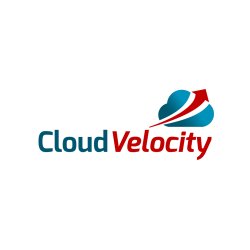CloudVelocity makes its AWS debut; reveals $13m funding


It's a banner day for the Santa Clara, Calif.-based startup CloudVelocity, which simultaneously rolled out its One Hybrid Cloud software for Amazon Web Services and announced $13 million in funding.
Not bad for a company that only announced its existence eight months ago, no?
First, the software. Its offering automates the migration of applications to Amazon Web Services—"existing and new Linux and Windows multi-tier and multi-system apps," specifically—without requiring that they be modified for the new environment. Savings in time and expense is estimated to be upwards of 90 percent.
Given the technical nature of this, I'll spare you from paraphrasing and let the company explain in its own words:
Unlike image or template-based tools, One Hybrid Cloud software automates the entire process from discovering the constituent hosts, blueprinting of system components and configuration, provisioning of cloud resources, continuous replication and synchronization of the entire app stack (including operating system, kernel, app software stack, and app data), service initiation in the cloud site to extending infrastructure services (like LDAP and Active Directory), all with a single click.
With One Hybrid Cloud software, the cloud pre-production and production environments are virtually identical, which minimizes errors and reduces development cycles as software is updated and easily pushed live. The cloud becomes an ideal operating model for disaster recovery. Customers can leverage the cloud as needed, instead of having to build and support duplicate apps and infrastructure for the possibility of occasional use.
Typically these processes are separate and manual in nature; CloudVelocity insists this is one reason enterprises aren't adopting the cloud more readily. (Though there are others!) The company says it has conducted more than 100 enterprise trials to prove its point, and has signed deals with a financial services company (for disaster recovery) and the datacase infrastructure startup ScaleArc (for agile software development) ahead of its proper release.
The company plans on announcing support for other cloud providers later this year.
Secondly, CloudVelocity raised $13 million in a Series B funding round, bringing its total raised to $18 million. The oversubscribed round included Third Point Ventures, Pelion Venture Partners and Mayfield Fund. The startup doesn't have any new designs for the money; rather, it plans to use it as fuel on the fire of its existing strategy.